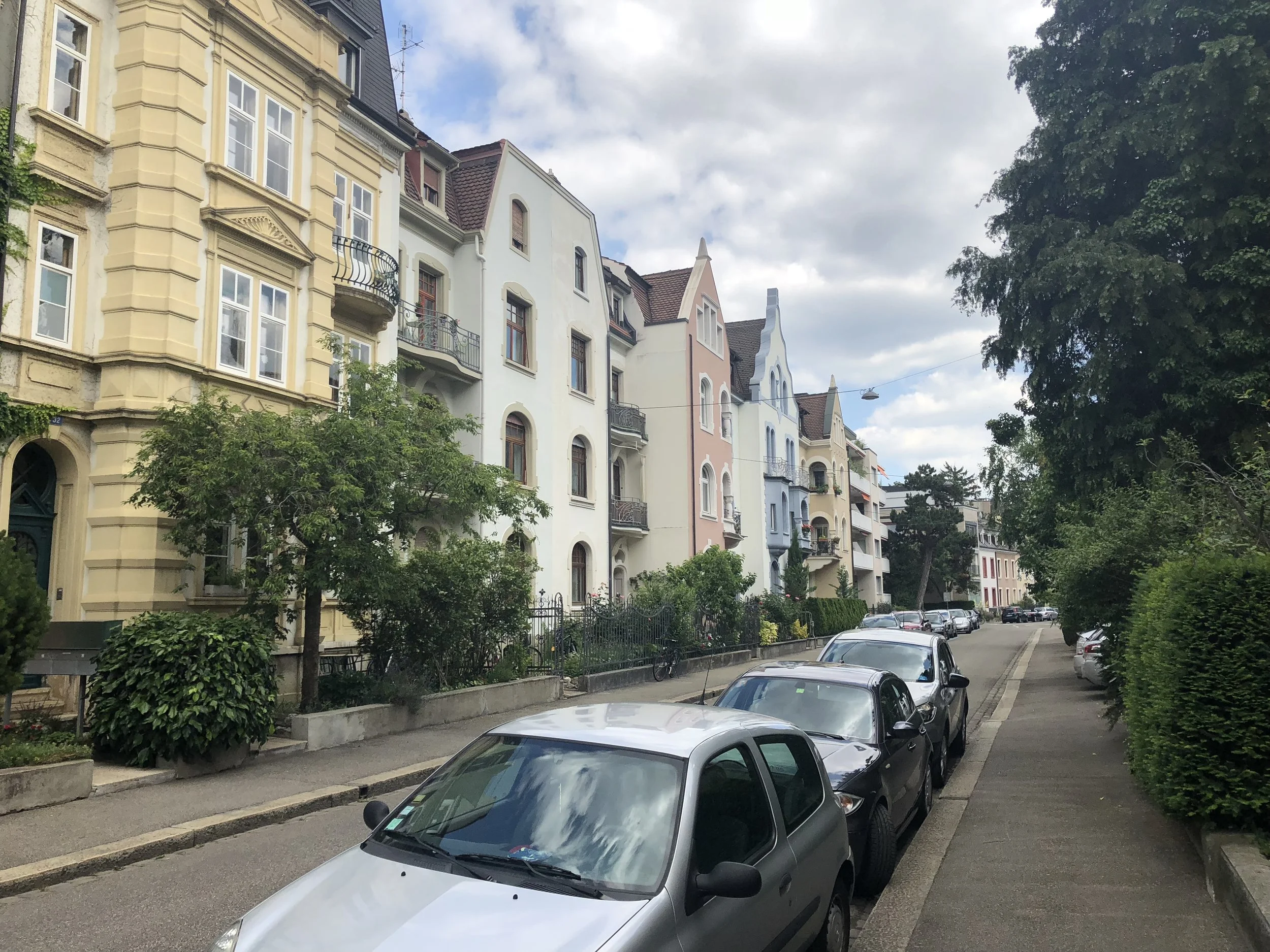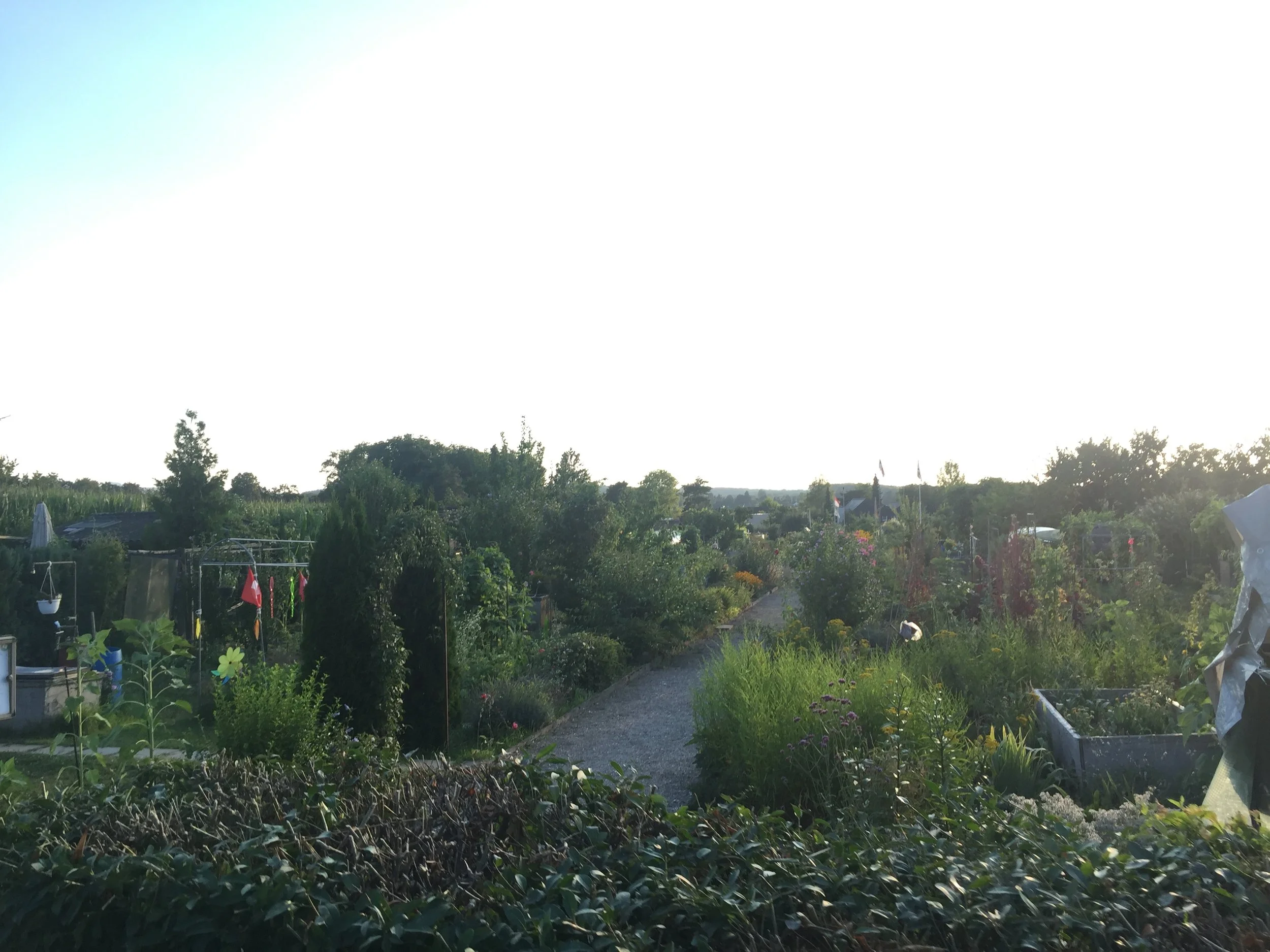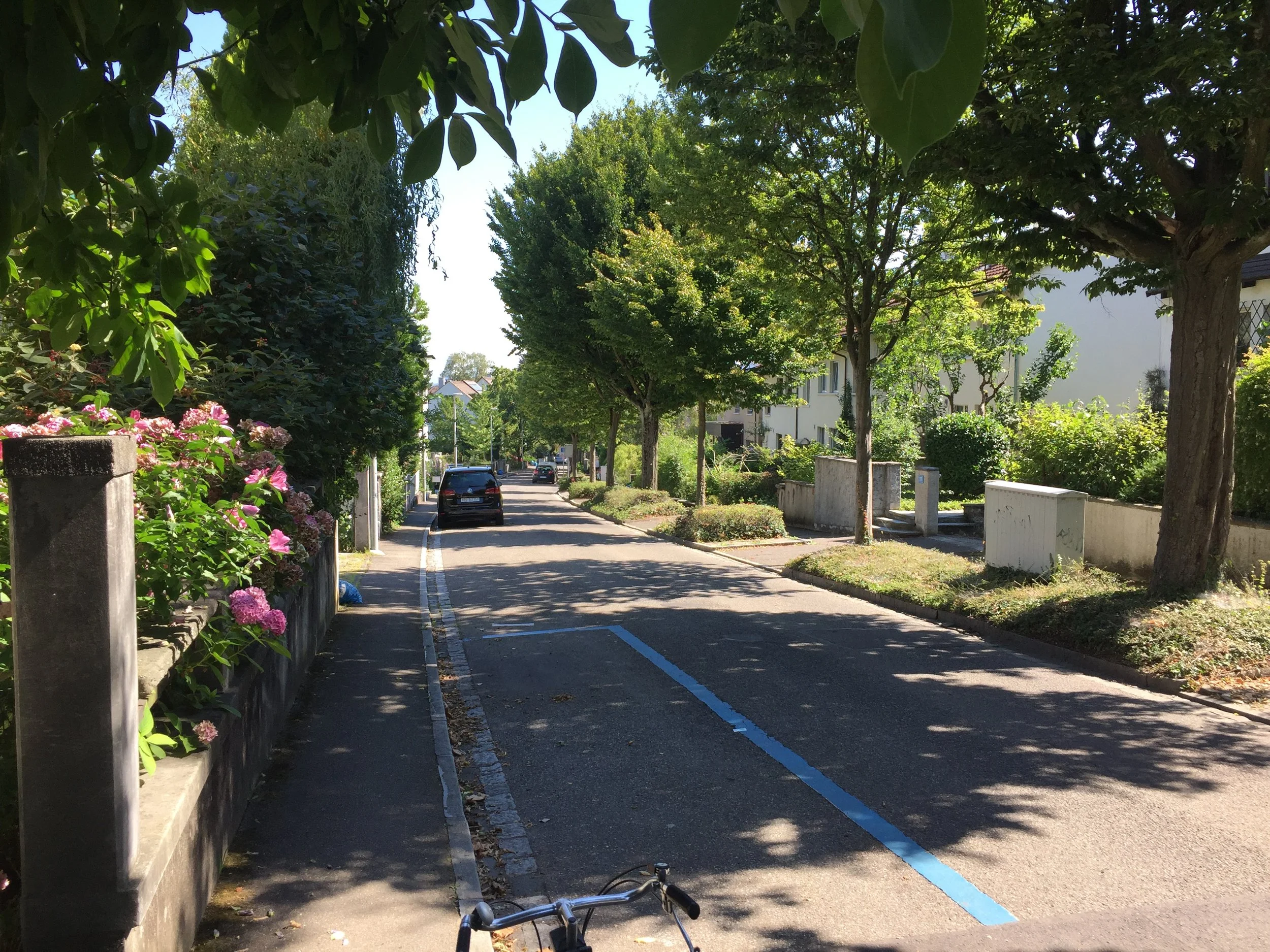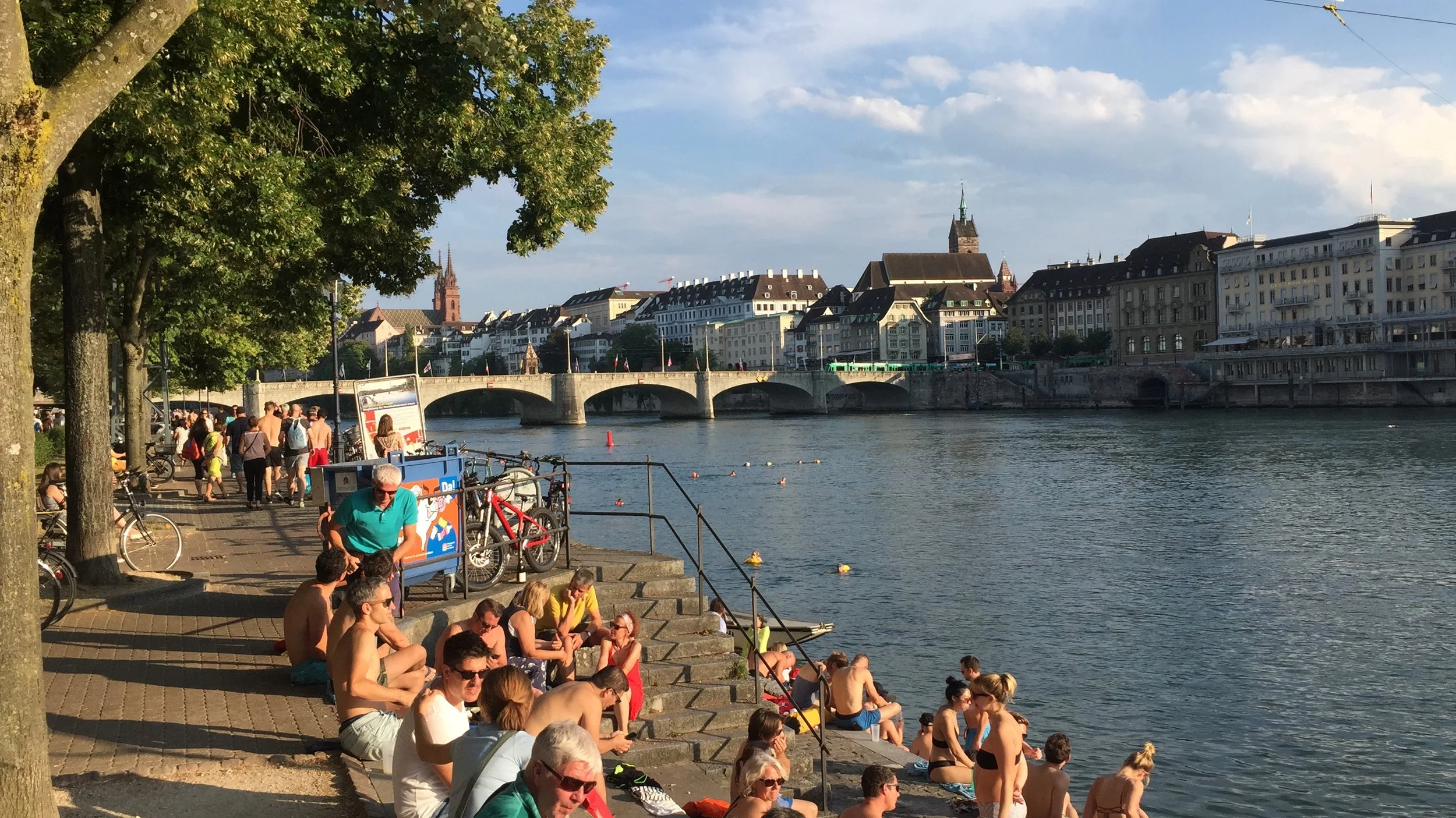BASEL
In 2018, I planned a trip to Geneva, Switzerland, to propose to my then-girlfriend and tour some small towns in France on a sort of engagement moon. I proposed, she said yes, and we had the trip of a lifetime—except I had to figure out how to stay and work in Switzerland.
I ended up working with an old professor, Edgar Sarli of Loeb Sarli Architekten, to help renovate the historic Hotel Basel and provide preliminary design work and existing conditions drawings for Alp 5 – Haus in Basel, Switzerland. My responsibility for the hotel project was construction administration: coordinating the implementation of technical drawings with builders on site, resolving conflicts during construction, and ensuring the project stayed on schedule. One of the more immediate challenges was the language barrier. Most of the workers spoke German or Portuguese, and I spoke English—plus a little Spanish and French. Thankfully, drawing is a universal tool we could all communicate through.
This was one of the biggest challenges of my professional and personal life. I had no family or friends in Basel, my fiancée was living in a different city hours away by train, and I was renting a room in a family’s home with no air conditioning, and I didn’t speak the language. To top it off, our office was a single model room inside the hotel, shared with my boss and his wife, who is also his business partner. We drafted drawings and coordinated with the team to the constant soundtrack of hammering, drilling, and sawing—again, no air conditioning, and it was a very, very hot summer.
I adapted quickly, lost five pounds, the job went smoothly, and we finished on time. The hotel looks amazing. At the end of the project, I relocated to Geneva to join my fiancée and begin the next chapter of our lives together.
Basel is an interesting city—especially for architects. It’s the cultural capital of Switzerland and home to offices like Herzog & de Meuron, Christ & Gantenbein, HHF, Diener & Diener, Westpol, and many others. It also hosts Art Basel and is home to the Kunstmuseum, the Beyeler Foundation, and the nearby Vitra Campus, with buildings by renowned architects. But outside of these cultural nodes, Basel felt like a sleepy town—somewhat insular, as the Swiss are often described.
I lived near Benken Park and biked to and from Hotel Basel every day. Every evening I jogged around Schützenmattpark or up to the Aussichtspunkt Bruderholz—a broad, open field with sweeping city views and a web of quiet trails. Along the way, I’d pass vast areas of micro-farms and gardens where locals can rent plots to grow their own food. It’s a humble but powerful model of urban self-sufficiency—something the U.S. could learn from.
Loeb Sarli Architekten
https://loebsarli.com/architecture/hotel-basel/
https://loebsarli.com/architecture/alp5/
Rütimeyerstrasse 37
4054 Basel
Schweiz
loeb@loebsarli.com
+41 61 511 21 54




















